On the afternoon of April 4, HoloMatic - Wuhan University School of Geodesy and Geomatics Joint Lab on Autonomous Driving (hereafter Joint Lab) was inaugurated at Wuhan University School of Geodesy and Geomatics. The two sides announced that, through industry-academia cooperation, they would pool their expertise to promote the development, innovation and application of high-precision localization technology based on multi-sensor fusion.
Yibin Yao, Dean of Wuhan University School of Geodesy and Geomatics, Li Yan, Deputy Dean of the School, Professor Xingxing Li, Kai Ni, founder and CEO of HoloMatic, Yuguo Sun, cofounder of HoloMatic and Zhen Dai, Director of Map and Simulator at HoloMatic, as well as dozens of students at Wuhan University attended the inauguration ceremony.
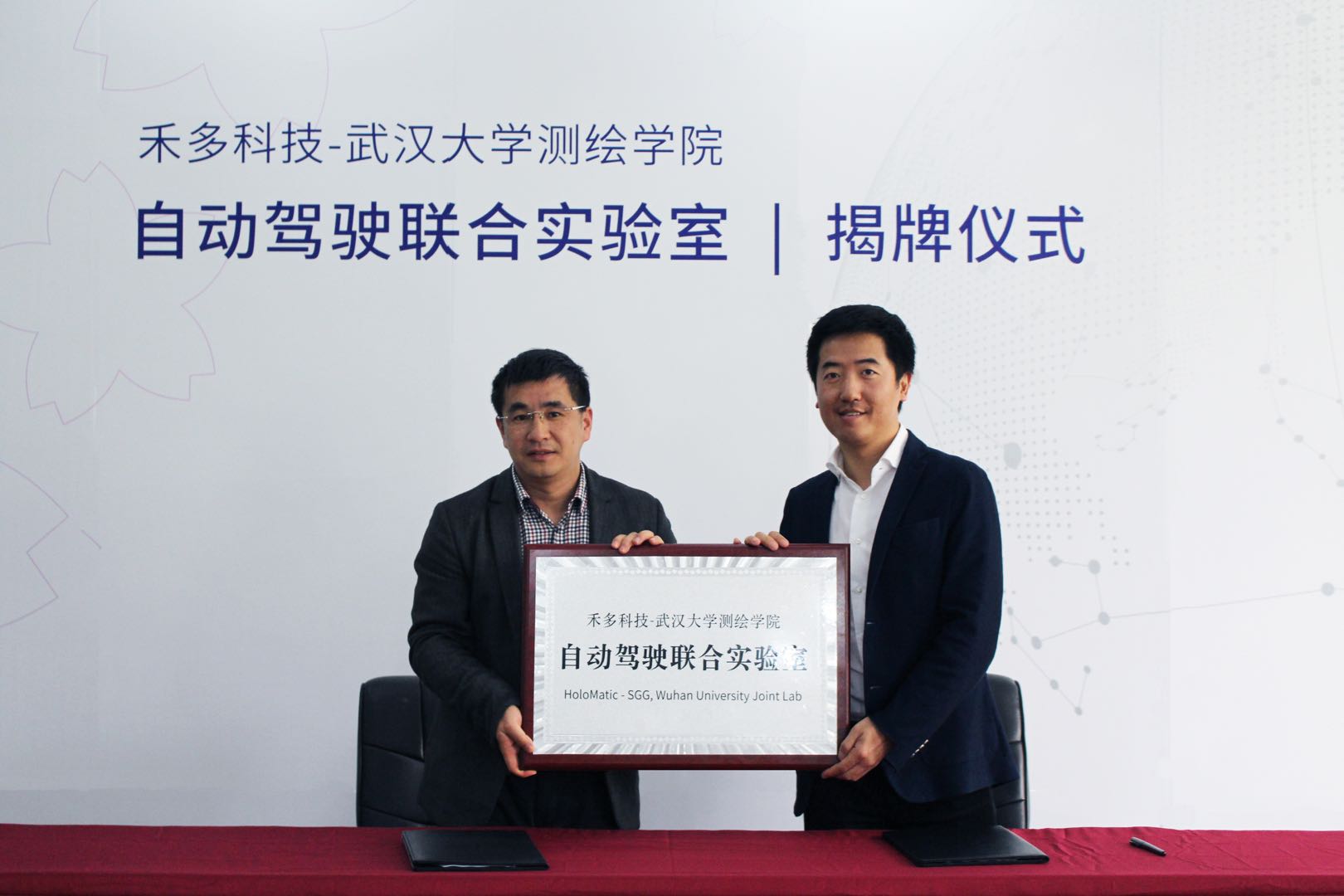
Yibin Yao, Dean of Wuhan University School of Geodesy and Geomatics, and Kai Ni, founder and CEO of HoloMatic inaugurated the Joint Lab.
The Joint Lab specializes in high-precision localization based on multi-sensor fusion
Created in 2017, HoloMatic strives to create series production-ready autonomous driving solutions based on cutting-edge artificial intelligence and automotive technologies. It is one of the few companies with full-stack R&D capabilitiesfrom wire control, multi-sensor fusion to core algorithm design. Currently, the company focuses on two major use cases -- highway pilot and valet parking.
Zhen Dai is an expert in localization and navigation at HoloMatic with master’s and PhD degrees conferred by Universität Siegen and haswork experience in DLR and Garmin. At present, he is looking after R&Dand technical management of high-precision map and simulator at HoloMatic.
In the speech, Zhen Dai stressed the importance of high-precision localization in autonomous driving system. He believes that high-precision localization enables autonomous driving system to tap the data in HD map and to provide accurate information on location and motion, supporting route planning and vehicle control. Moreover, it can help with the perception system to generate more precise detection and tracking results.

ZhenDai, Director of Map Simulator at HoloMatic
The autonomous driving system developed independently by HoloMatic uses multi-sensor fusion for high-accuracy localization. Combining the sensory data from AI algorithm, integrated vision, IMU and speedometer, the autonomous driving system can provide reliable positioning information with 10-cm localization accuracy and 0.2-degree angle accuracy under the support of high-definition map and high-precision GNSS. The localization solution adopted by HoloMatic does not use lidar with a large number of channels, making the system more competitive in cost, integration and suitability. At the same time, the redundancy of sensors can complement each other in the system to minimize the impact of weather and lighting, which makes the system more capable of dealing with complex road conditions and increases the robustness and precision.
Zhen Dai said that in order to further enhance the company’s strength in high-precision localization, HoloMatic is planning to enter into deep cooperation with top research institutes. The reason HoloMatic has chosen Wuhan University School of Geodesy and Geomatics is that the School is a leading institute in the field of geodesy and geomatics and possesses the strongest capabilities in navigation and localization in China and even worldwide, in particular GNSS Precise Orbit Determination, high-precision localization and multi-sensor fusion-based navigation. The Joint Lab will reinforce the technical strength and broaden the talent pool of HoloMatic in high-precision localization, thus sharpening the company’scompetitive edge in autonomous driving.
A win-win situation will be achieved with in-depth collaboration among industry, academia and research institute
Yibin Yao, Dean of Wuhan University School of Geodesy and Geomatics, pointed out that the School has attached great importance to the translation and application of research outcomes and has been pursuing collaboration with hi-tech companies. By collaborating with great companies like HoloMatic, the School can further improve its teaching and experimental environment, upgrade its research platform, develop high-level talent for applied science and provide more intellectual support to autonomous driving industry. Furthermore, the School can solve the problem of “the last mile” in translating research outcomes into productivity, so that it can assume a constructive role in promoting innovation-driven development and creating greater social benefits.
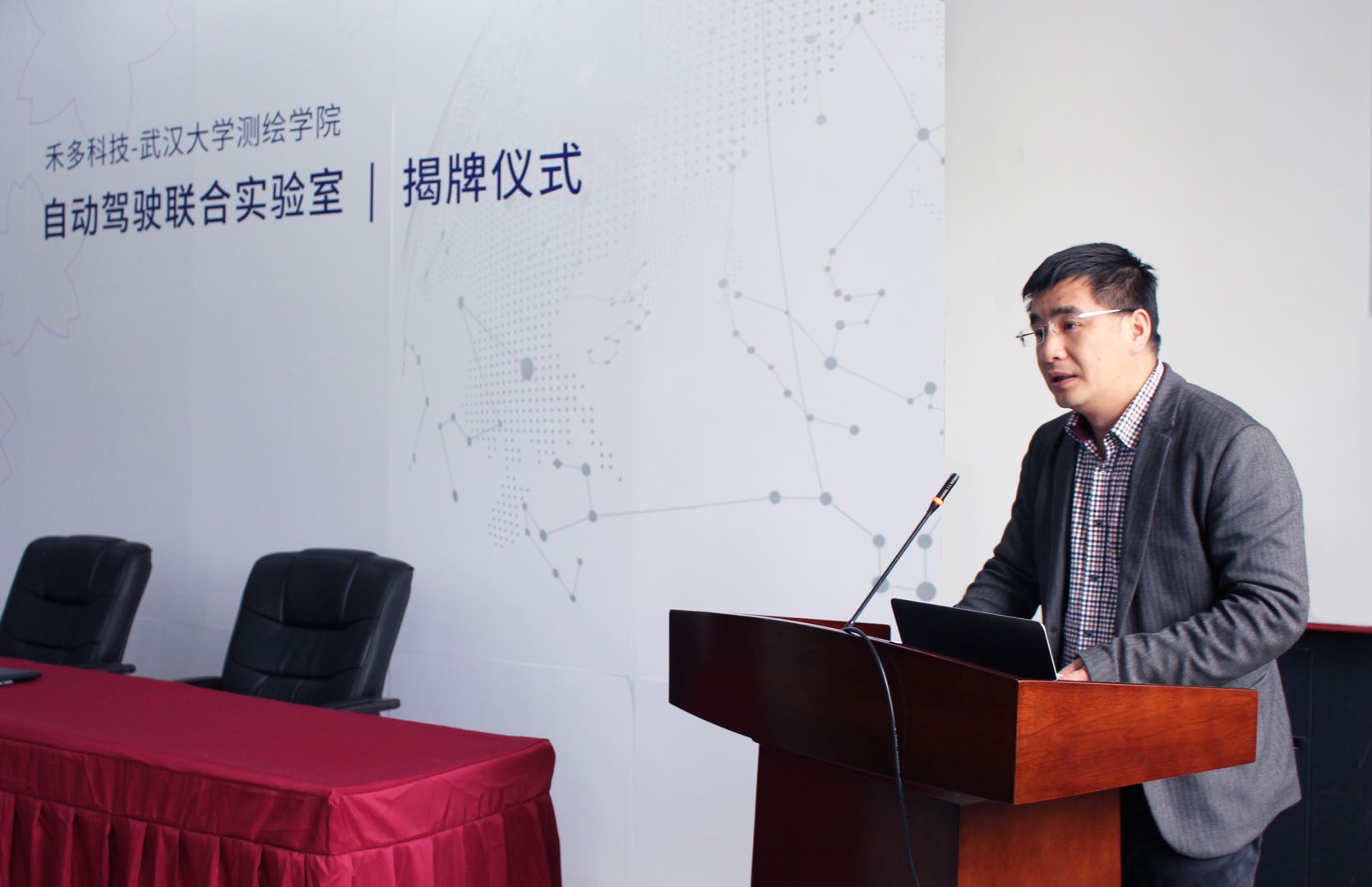
Yibin Yao,Dean of Wuhan University School of Geodesy and Geomatics
As the chairperson of the ceremony, Li Yan, Deputy Dean of School of Geodesy and Geomatics, said that the research activities and outcomes of the School fits the strategic needs of HoloMatic. With the establishment of the Joint Lab, the two sides are bound to bring out the best in each other.
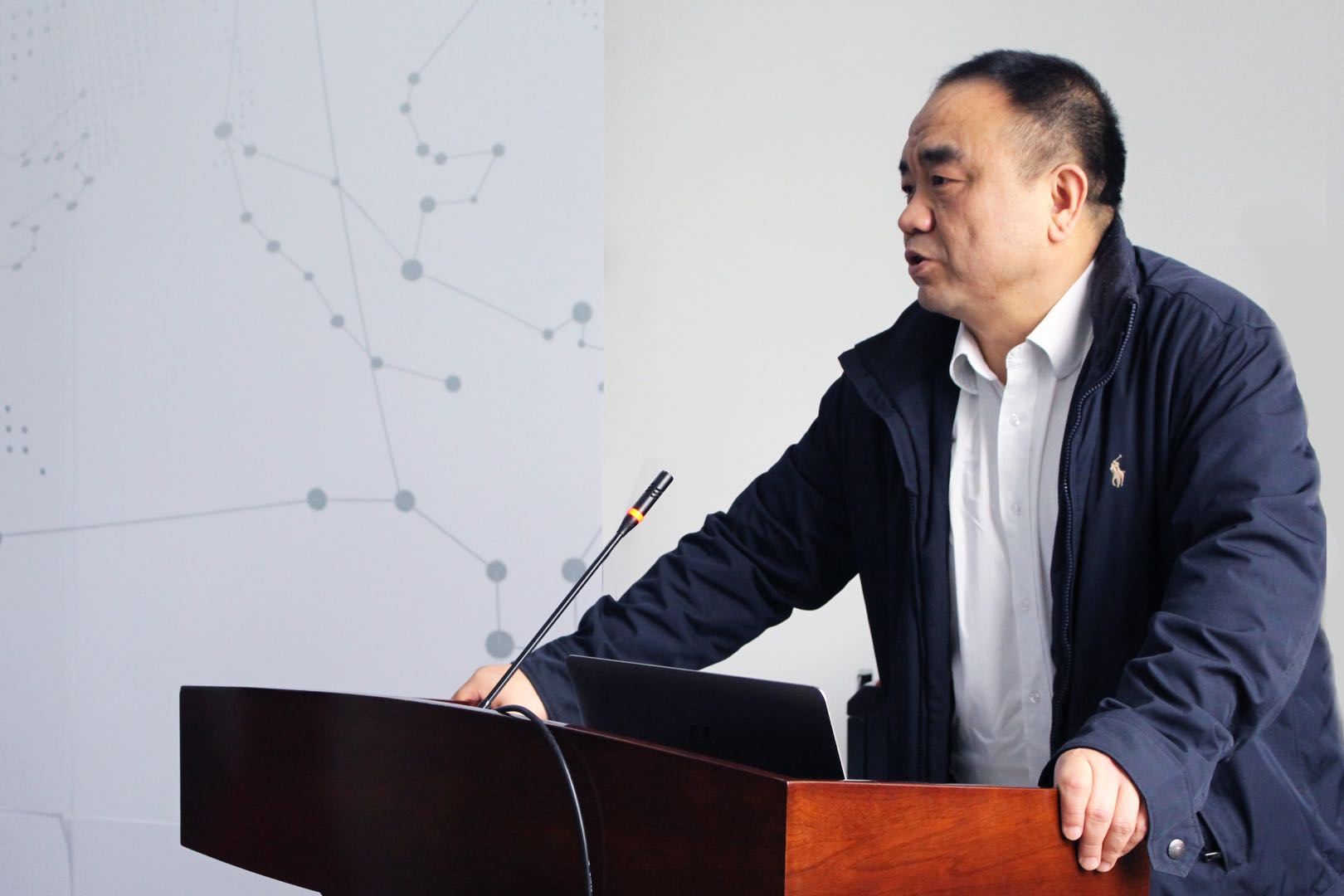
Li Yan, Deputy Dean of Wuhan University School of Geodesy and Geomatics
Xingxing Li, professor at School of Geodesy and Geomatics and candidate of Young Overseas High-level Talents Introduction Plan, pointed out that the School and HoloMatic aimed at long-term cooperation for mutual benefits and win-win; while advancing technological development, the two sides will make more efforts to integrate research outcomes into industrial development.
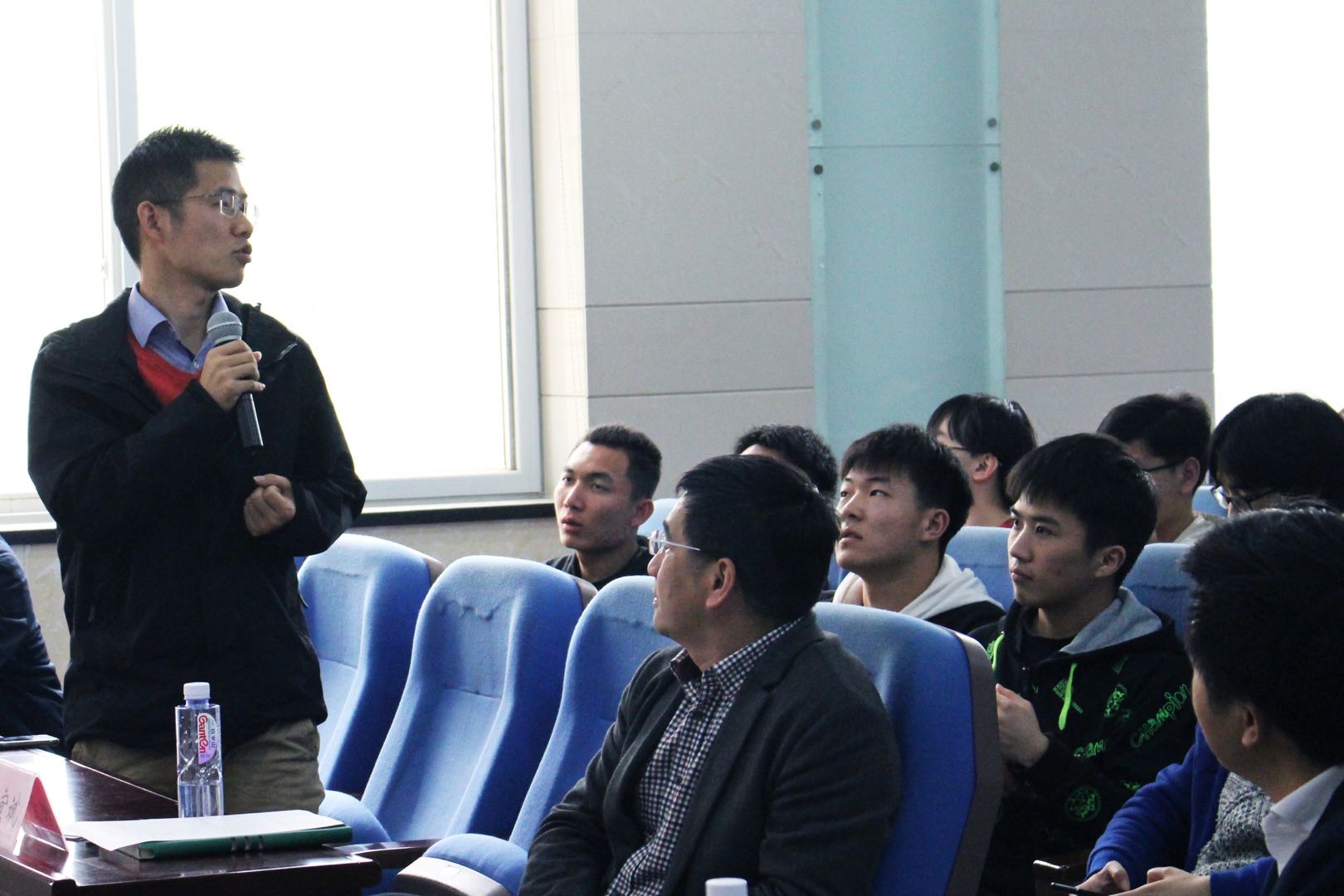
Xingxing Li, professor at Wuhan University School of Geodesy and Geomatics and candidate of Young Overseas High-level Talents Introduction Plan
It is worth mentioning that, as a visiting professor of Wuhan University, Yuguo Sun, cofounder of HoloMatic, once studied at the University for many years and obtained a doctor’s degree in engineering. In his speech, Sun said that the key to the strength of a technology company lies in innovation and sophistication. The technology of a great company should pervade every aspect of our life and stand the test of market force, which can only be achieved with the support of top talent. Wuhan University School of Geodesy and Geomatics has lots of talent in scientific research and industrial application, so the two sides will surely bring out the best in each other via the Joint Lab. As an alumnus of Wuhan University, Sun will spare no effort to facilitate the translation of research outcomes, contribute to the success of the university and benefit the career of other schoolfellows.
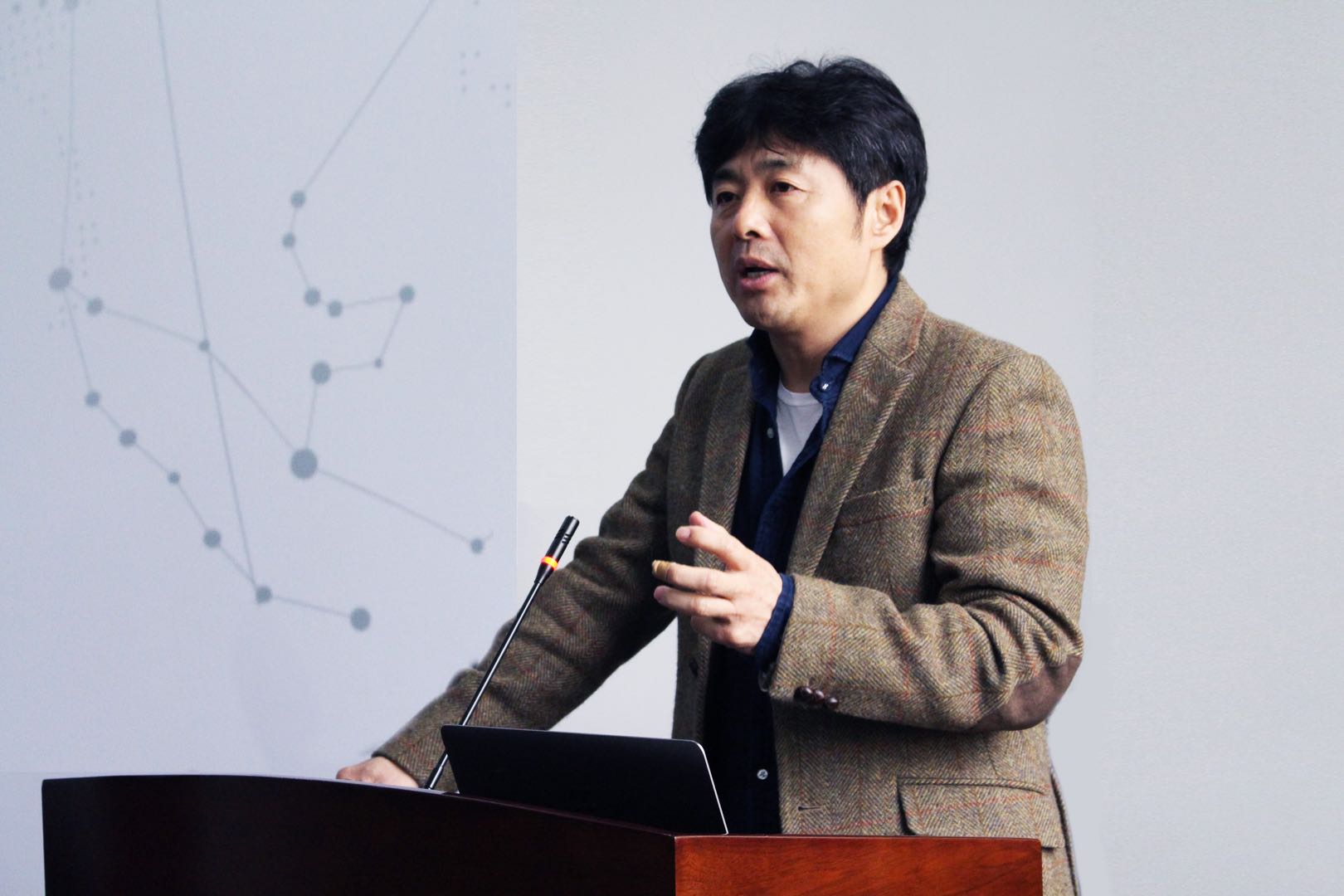
Yuguo Sun, cofounder of HoloMatic
As founder and former CEO of NavInfo, Yuguo Sun led the company to become a leader in digital map, IoV and autonomous driving in China. In 2018, impressed by the great potential of HoloMatic in autonomous driving, Sun, who was no longer involved in the routine management of NavInfo, decided to join HoloMatic as cofounder.
HoloMatic established presence in Wuhan
Kai Ni, founder and CEO of HoloMatic, said that Wuhan used to be an industrial powerhouse in China and, in recent years, Wuhan has been pursuing innovation-driven growth by upgrading its industrial structure, which has made itself a hub of high-tech and emerging industries in central China, including information technology and intelligent manufacturing.
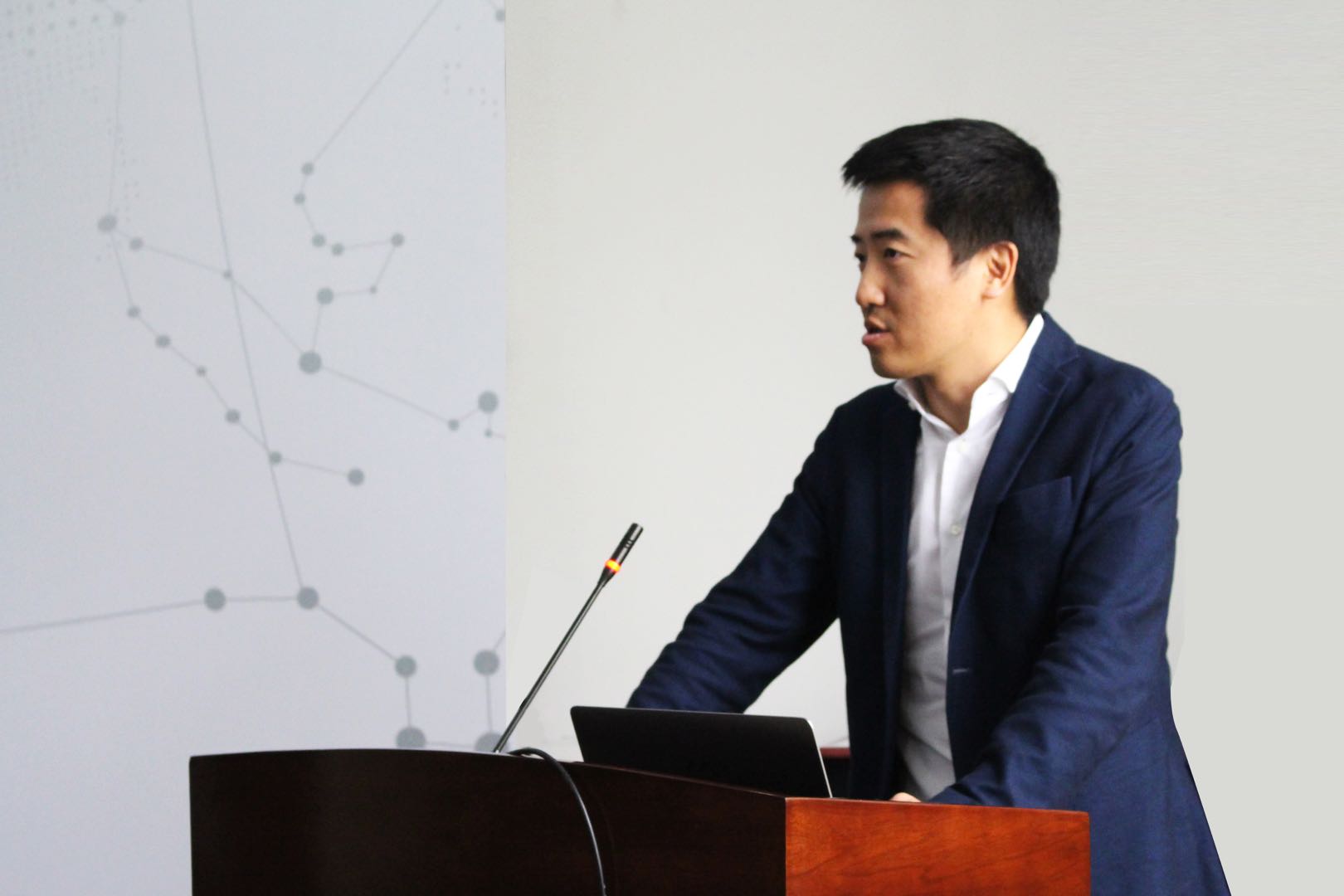
KaiNi, founder CEO of HoloMatic
Convinced of the research capabilities and technological momentum in Wuhan, HoloMatic takes the city as its strategic focus. Apart from the Joint Lab, HoloMatic also set up a research institutein Wuhan to formally establish its presence in the city. The research institute and Joint Lab will join forces to conduct exploratory research on autonomous driving.


